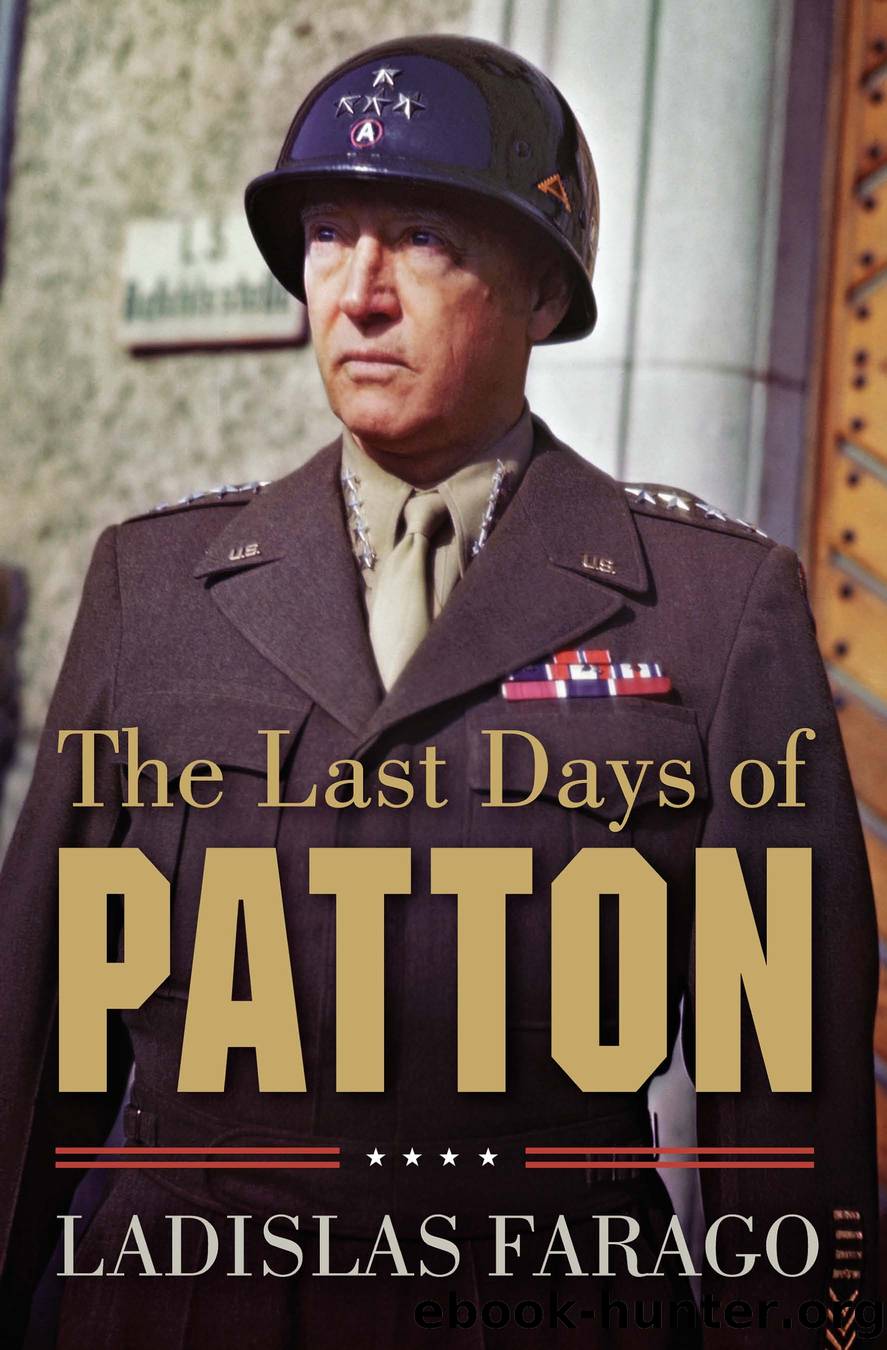The Last Days of Patton by Ladislas Farago

Author:Ladislas Farago
Language: eng
Format: epub
Publisher: Westholme Publishing
THE REPORTS from Garmisch-Partenkirchen reached General Adcock on September 9. He discussed them with Bedell Smith the same day. In turn, his chief of staff informed General Eisenhower that the Patton affair was coming to a head. A civilian aide in Adcock's office, Professor Walter Dorn, on leave from Ohio State University, then drafted a letter for Ike's signature, to remind Patton of the policies of the occupation which he was so apt to forget. This was no longer a relatively narrow issue, like the handling of DPs and the feeding of the Jews. This was a case of chronic insubordination. Patton was defying Ike, his commander, and in the process he was sabotaging the will of the government of the United States.
The letter stated in no uncertain terms: âAs you know, I have announced a firm policy of uprooting the whole Nazi organization regardless of the fact that we may sometimes suffer from local administrative inefficiency. Reduced to its fundamentals, the United States entered this war as a foe of Nazism; victory is not complete until we have eliminated from positions of responsibility and, in appropriate cases, properly punished, every active adherent to the Nazi party.
âI know that certain field commanders have felt that some modifications to this policy should be made. That question has long since been decided. We will not compromise with Nazism in any way.
âI wish you would make sure that all your subordinate commanders realize that the discussional stage of this question is long past and any expressed opposition to the faithful execution of this order cannot be regarded leniently by me. I expect just as loyal service in execution of this and other policies applying to the German occupation as I received during the war.â
It was not the first such communication laying down the ground rules and spelling out the policies of the occupation. As recently as August 23, Patton had been reminded by Eisenhower that the âobliterationâ of the Nazis was a must on their agenda. âDenazification,â Ike told him, âis a most delicate subject both here and at home.â And during a three-day conference of all the military governors, between August 24 and 27, General Adcock had reiterated the admonitions. âYou are not here to govern,â he said. âYour job is to control. And denazification and demilitarization are the two items of top priority on our schedule.â
Patton had been fidgety and flippant at that conference. He had told anyone willing to hear him out that âGermany was so completely blacked out that so far as military resistance was concerned they were not a menaceâ and that âwhat we had to look out for was war with Russia.â He had likened what the Americans were doing in Germany to the methods of the Gestapo, sounding an ominous note of interference in domestic politics. âIf any newspaper opposed to the Democrats,â he said at the conference, âshould get hold of the stuff that is being put out by those in charge of the military
Download
This site does not store any files on its server. We only index and link to content provided by other sites. Please contact the content providers to delete copyright contents if any and email us, we'll remove relevant links or contents immediately.
| France | Germany |
| Great Britain | Greece |
| Italy | Rome |
| Russia | Spain & Portugal |
Fanny Burney by Claire Harman(26594)
Empire of the Sikhs by Patwant Singh(23070)
Out of India by Michael Foss(16848)
Leonardo da Vinci by Walter Isaacson(13315)
Small Great Things by Jodi Picoult(7121)
The Six Wives Of Henry VIII (WOMEN IN HISTORY) by Fraser Antonia(5496)
The Wind in My Hair by Masih Alinejad(5091)
A Higher Loyalty: Truth, Lies, and Leadership by James Comey(4950)
The Crown by Robert Lacey(4806)
The Lonely City by Olivia Laing(4798)
Millionaire: The Philanderer, Gambler, and Duelist Who Invented Modern Finance by Janet Gleeson(4464)
The Iron Duke by The Iron Duke(4349)
Papillon (English) by Henri Charrière(4261)
Sticky Fingers by Joe Hagan(4188)
Joan of Arc by Mary Gordon(4099)
Alive: The Story of the Andes Survivors by Piers Paul Read(4018)
Stalin by Stephen Kotkin(3956)
Aleister Crowley: The Biography by Tobias Churton(3628)
Ants Among Elephants by Sujatha Gidla(3459)
